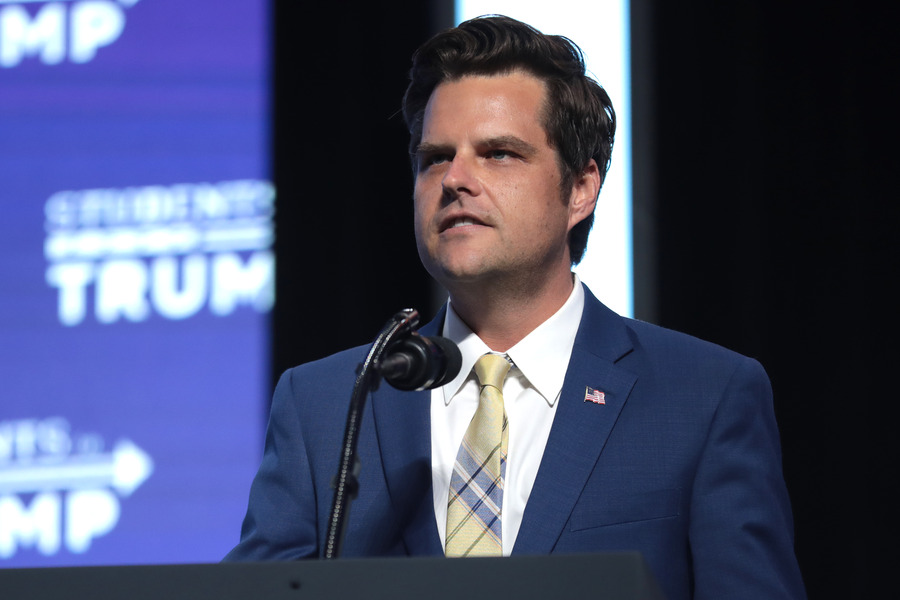The Leader DHS Needs Now...Or, Later
One thing that struck me about the run up to the recent nomination for FBI Director (and the earlier nomination process for Secretary of State): the lack of public dialogue about the challenges the bureau faces today, and the kind of leader who would best serve it for the next decade. The process of selecting senior leaders often starts off with a list of names—who is currently “trending,” who is “up and coming,” whose “turn” it is, or who has the President’s ear.
Published by The Lawfare Institute
in Cooperation With

One thing that struck me about the run up to the recent nomination for FBI Director (and the earlier nomination process for Secretary of State): the lack of public dialogue about the challenges the bureau faces today, and the kind of leader who would best serve it for the next decade. The process of selecting senior leaders often starts off with a list of names—who is currently “trending,” who is “up and coming,” whose “turn” it is, or who has the President’s ear. Then, through discreetly leaked background noise, unflattering media reports, missteps by would-be nominees, or unhappiness on the Hill, names get disqualified, one by one, until we are left with a (very) short list of confirmable candidates.
On July 12th, DHS Secretary Napolitano announced that she will leave her post and take the helm of the University of California system. Most likely, a safe, comfortable selection will be made to replace her for the remaining days of the Obama Administration. The nominee will probably be someone who is competent. He or she will also probably be someone unlikely to make major changes in the organization. The job will not go to a visionary.
Naturally, Napolitano's looming departure has put DHS in the spotlight. Thus I thought it might be useful to reflect on some key qualities that would make for an effective Secretary of Homeland Security---if not this time, then maybe the next:
• A superb executive manager. DHS was created in the wake of 9/11 and brought together twenty-two components or departments and over 200,000 employees under the umbrella of one agency. It is a mammoth organization. More than perhaps any other agency, particularly those involved in national security work, DHS is the face of the U.S. government to the public. Immigration and customs officers, TSA employees, emergency response personnel---all these officials interact with Americans across the country, every minute of every day. The Department should be led by someone who understands, deeply, the importance of that role, and who aspires to move the department forward. The DHS of the future needs be best positioned to fulfill its statutory mission to protect the nation from both the foreseeable as well as the unforeseeable, and, to do it in a way that instills public confidence.
• A leader who can build bridges between federal, state and local officials. DHS serves many functions. And within each, there are often many layers of coordination and collaboration between federal, state and local personnel. Accordingly, the Secretary should have a sophisticated understanding of both the law enforcement and intelligence communities. The nominee also should be someone who not only can get along with, but also wants to get along with interagency partners---and has demonstrated the capability to rise above so-called turf wars and foster respect among interagency partners.
• A substantive expert with a vision for the DHS of the future. DHS is young enough that its current organizational structure and priorities need not be set in stone. Conceiving of a modern vision and then actually implementing it, however, will require significant political abilities. Changes may involve re-organizing, shedding some functions, or enhancing others. Some changes may need legislation before they can be made. With respect to priorities, the current immigration debate and legislation will obviously be important to the next Secretary. Other top priorities must include counterterrorism, cybersecurity, and disaster response---whether the disasters result from human activities or nature. After those, the DHS Secretary should take a hard look at what roles fit into DHS’s core existing capabilities, where DHS may be unnecessarily duplicating activities done elsewhere in the law enforcement or intelligence communities, and where the agency's unique capabilities allow it to address particular challenges. DHS is now more than a decade old. It is time to take a hard look at what functional and organizational changes should be made, before the window for change closes, or narrows enough to make needed changes more difficult. All that means that the DHS Secretary should also be, of course...
• A political heavyweight. Leading DHS is not a job for a government executive trying to stretch into a Cabinet appointment. The job is instead meant for a seasoned leader, with the political chops to take on hard issues and, in order to be effective, work with the dozens of committees on the Hill that exercise oversight responsibility.
That's a tall order.
It will be interesting to watch whether we end up with a safe or an inspired choice---this time, or, the next.
Carrie Cordero is a Senior Fellow at the Center for a New American Security. She is also an adjunct professor at Georgetown Law, where she previously served as Director of National Security Studies. She spent the first part of her career in public service, including as Counsel to the Assistant Attorney General for National Security; Senior Associate General Counsel at the Office of the Director of National Intelligence; Attorney Advisor at the Department of Justice, where she practiced before the Foreign Intelligence Surveillance Court; and Special Assistant United States Attorney.




